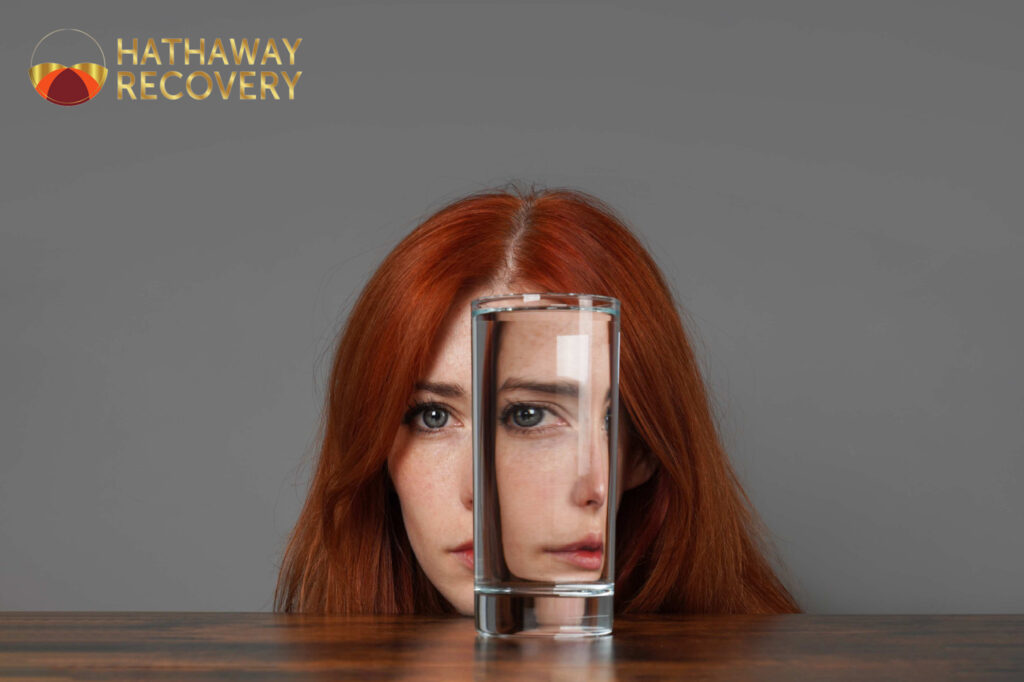A dual diagnosis means you simultaneously have a substance abuse disorder and a mental illness. Co-occurring disorders and co-morbidity are other names for dual diagnoses. Both conditions will be treated at the same time. Treatment can include medication, behavioral therapy, support groups, or inpatient care.

What is Dual Diagnosis?
A dual diagnosis is when you have a mental disorder and an addiction disorder both at the same.
Depression, anxiety, and mental health conditions are all types of mental disorders. Substance use disorders can involve alcohol, drugs, or other addictive substances. These conditions can have a greater impact when they occur in conjunction.
Untreated mental issues can lead to substance abuse problems that worsen or increase. When substance abuse increases, mental health issues may also increase. It’s a dangerous cycle.
What are the symptoms associated with dual diagnosis?
Both your substance abuse and mental illness have distinct symptoms. Dual-diagnosis symptoms will vary depending on the substance and mental disorder involved. Dual diagnosis can cause a wide range of symptoms.
The following symptoms may be present in a person with a substance abuse disorder:
- You may withdraw from family members and friends.
- Focusing difficult.
- Changes in behavior that are sudden
- Risky behavior is a risky activity.
- The substance is becoming more addictive and/or causing withdrawal symptoms.
- You feel like you need substance to function.
Mental health disorders can manifest as:
- Extreme mood swings
- Confusion.
- Concentration problems.
- Inability to perform at school or work
- Avoiding social activities.
- Suicidal thoughts
What disorder is the first one in a double diagnosis?
It can be hard to determine which came first, like the chicken or egg. Dual diagnoses can occur simultaneously, but that doesn’t necessarily mean they are related.
Substance abuse disorders do not necessarily cause mental disorders. Alcohol and drugs can exacerbate the symptoms of mental disorders. Continued use of these substances increases your risk of developing mental disorders.

What is the cause of dual diagnosis?
Researchers have several theories as to why substance abuse and mental disorders are often linked.
Both mental disorders and substance abuse disorders can be caused by certain risk factors. These risk factors include:
Genetics
Both mental health disorders and substance abuse disorders can run in families. Many genes can influence your likelihood of developing mental health disorders or substance use disorders.
Environmental factors
Stress and trauma are environmental factors that can be passed on from generation to generation. They can lead to the development of mental disorders or substance abuse disorders.
How is Dual diagnosis diagnosed?
Dual diagnosis is not a diagnosis. It’s a combination. Your healthcare provider may have difficulty making an accurate diagnosis due to the fact that symptoms can overlap.
Hathaway Recovery uses a wide range of screening tools to assess you for both disorders. When speaking to your healthcare provider, it’s important that you are honest. Your answers will help them determine your disorders and the appropriate treatment.
What is Dual Diagnosis Treatment?
The dual diagnosis treatment includes treatment of both your mental illness and substance abuse disorder. Your healthcare provider will help you understand how each disorder affects the others. You can then determine the most effective treatment.
You must stop using addictive substances in order to recover from dual diagnosis. This may begin with detoxification for many people. Inpatient detoxification is monitored by healthcare professionals 24 hours a day for a maximum of a week. They will help you wean off the substance and offer ways to reduce withdrawal symptoms.
Depending on your dual diagnosis, you may need to receive medication, behavioral therapy, support groups, or inpatient care.
How can I lower my risk of a dual diagnosis?
Both mental health disorders and substance abuse disorders are brain diseases. You can reduce the risk of developing them by:
- Discovering your family’s biological history.
- Alcohol consumption should be limited.
- Speak to your healthcare provider
What can I expect when I have a double diagnosis?
Your chances of recovery from dual diagnosis are high if you receive the right treatment. You can expect to improve your life quality and have a positive outcome. You’ll have to work with your healthcare provider and/or support group for your recovery to be lasting. Do not be afraid to ask for help.
Dual Diagnosis Treatment Center California
Hathaway Recovery provides dual diagnosis residential treatment and a customized program that incorporates evidence-based treatments such as experiential and behavioral therapy. Our holistic healing program will help you to grow as a human being and give your life a new start.
Your privacy and comfort are important to us. Our luxurious, state-of-the-art facilities will make you feel relaxed. Hathaway Recovery’s professional and compassionate staff is always ready to help you.
Our center offers private rooms, personalized treatment plans, and personal attention. Our staff is made up of the best specialists. Our mission is Renewing and Rebuilding Lives.
Call the Admissions Department (909) 971-3333 with any questions about dual diagnosis treatment near me.
The information is completely confidential.
Do not miss out on the opportunity to improve your life.
- Individual Counseling
- Group counseling
- Family Drug Education
- Relapse Prevention Therapy
- Counseling for grief






